In Jackson fanden wir unsere ersten Blues Trail Marker (http://www.msbluestrail.org/) in der Farish Street. Zur Zeit ist diese Strasse extrem zerfallen. Es stehen nur noch Ruinen, soll aber in naher Zukunft restauriert werden.
This marker is down for repair.
..............................................................................................................................................................
..............................................................................................................................................................
...............................................................................................................................................................
................................................................................................................................................................
Bentonia - Blue Front Cafe


These nice shots were taken by Gordon Yamamoto - Thanks Dude!
................................................................................................................................................................
"Jack Owens (1904-1997) was a farmer his entire life in the small town of Bentonia, Mississippi where he ran a juke joint on weekends at his home. David Evans met Jack during one his research trips in the 60s. Since that meeting hundreds of blues fans made the pilgrimage to Jack’s door. Alan Lomax visited him once and encouraged Owens to keep playing his guitar in his unique minor tuning.
He is compared to fellow Bentonian Skip James, but Owens music is uniquely his own. Jack Owens passed on February 9th, 1997." ( source: www.musicmaker.org )
..........................................................................................................................................................
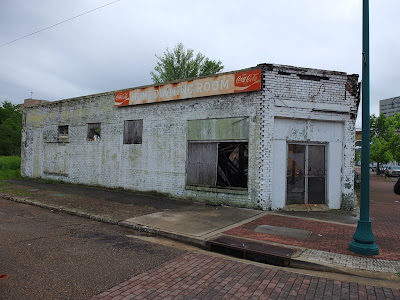 |
| Farish Street, Jackson Mississippi |
Dorothy Moore / Alamo Theatre - Jackson
"The Alamo Theatre opened at this location in 1949. Prior to that the Alamo occupied two other spots in the area. The theatre showed movies, hosted music competitions, and presented blues and jazz concerts by artists such as Nat “King” Cole, Elmore James, Louis Jordan, and Cab Calloway during the 1940s and ‘50s. Gospel groups and vocal ensembles also performed. Local resident Dorothy Moore’s many victories at Alamo talent contests ultimately led to a successful recording career.
Talent shows have long served as an entry to the world of professional entertainment, and in Jackson many aspiring artists began their careers in contests at the Alamo Theatre. One was Dorothy Moore, who was offered a recording contract after consistently winning the Wednesday night talent contests here while in junior high. In 1966 she recorded an album as the lead singer of the vocal group the Poppies. Moore later sang background vocals for Malaco Records in Jackson and was soon recording there as a featured artist. In 1976 her record “Misty Blue” was a huge hit and established Malaco as a major player in the soul and blues field. Her other hits included “Funny How Time Slips Away,” “I Believe You,” and “With Pen In Hand.” She later formed her own label, Farish Street Records, and her honors include a 1996 Governor’s Award For Excellence in the Arts.
For many decades the Alamo served as a major African American entertainment venue under the management of Arthur Lehmann. The theatre opened at 134 North Farish Street in 1915 and moved to123 West Amite Street, just off Farish, in the 1920s. In 1948 Lehmann constructed a new building at this location to house the Alamo. Lehmann sold the property in 1957. The Alamo served mostly as a movie theatre, initially showing piano-accompanied silent movies and, after 1932, “soundies.” The theatre also booked vaudeville, jazz, blues, and gospel performers, including Elmore James, Tiny Bradshaw, Nat King Cole, and the Rays of Rhythm from Mississippi’s Piney Woods School. Al Benson, who later became Chicago’s top radio personality, promoted shows here in the 1930s and sang with the Leaners Band, which featured George Leaner on piano. Lillian McMurry of Trumpet Records, whose offices were located on the same block, attended gospel shows here to discover talent. Blues pianist Otis Spann recalled winning an Alamo talent contest as a child, and other local artists who competed included Sam Baker, Jr., Mel Brown, Sam Myers, Cadillac George Harris, Little Jeno Tucker, Tommy Tate, Amanda Humphrey (Bradley), Roosevelt Robinson, the vocal group the Quails (Dequincy Johnson, George Jackson, and Sam Jones), and Albert Goodman, later of the Moments and the trio Ray, Goodman & Brown. During the 1950s and ’60s Jobie Martin of Jackson’s WOKJ radio emceed the contests.
The Alamo closed in the 1980s and, following extensive renovation, reopened under non-profit ownership in 1997. The theatre began to celebrate Farish Street’s musical legacy again with occasional music programs, and in 2000 Jackson bluesman Eddie Cotton, Jr., recorded his CD Live at the Alamo Theatre here." content © Mississippi Blues Commission
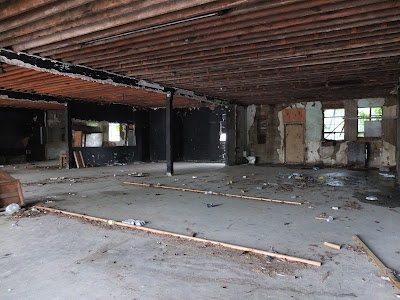 |
| Der entkernte Raum wo früher einmal Trumpet Records war. |
 |
| Trumpet Records Gebäude, 309 Farish Street |
Trumpet Records - Jackson
This marker is down for repair.
"Trumpet Records was the first record company in Mississippi to achieve national stature through its distribution, sales, radio airplay and promotion. Willard and Lillian McMurry launched the label from their retail store, the Record Mart, here at 309 North Farish Street, in 1950, and later converted the back room into a recording studio. The first releases by Mississippi blues legends Sonny Boy Williamson No. 2, Elmore James, and Willie Love appeared on Trumpet in 1951.
Willard and Lillian McMurry, who were furniture dealers by trade, entered the record business by chance, when they acquired a stock of blues and rhythm & blues 78 rpm discs with the inventory of a hardware store they purchased at this site in 1949. They turned the building into the Record Mart when they discovered they had a ready-made market for blues and gospel records on Farish Street, which was already home to much of Jackson’s African American music and commerce. The Record Mart also came to serve as the headquarters for Diamond Record Company, Trumpet Records, Globe Music, and Globe Records.
Sonny Boy Williamson 2 schrieb sogar einen Song über das Trumpet Records Gebäude mit der Hausnummer 309
On April 3, 1950, the McMurrys brought the St. Andrews Gospelaires into a local radio station (WRBC) for Trumpet’s first recording session. During the next three years, Trumpet utilized sixteen different studios, in Jackson and other cities, before Lillian McMurry began in-house recording, first at the McMurrys’ State Furniture Company at 211 South State Street, and then at Diamond Studio in this building. The primary artist on the Trumpet label was Sonny Boy Williamson (Rice Miller), who had eleven records released between 1951 and 1955, the label’s final year of operation. The McMurrys continued to record country artists for their Globe label until 1956.
“Dust My Broom” by Elmo (Elmore) James was the only Trumpet record to reach the national rhythm & blues charts of Billboard magazine (in April 1952), but other records by Williamson and Willie Love appeared on regional charts as far away as California and Colorado. Among other artists who recorded for Trumpet were bluesmen Jerry McCain, Big Joe Williams, Tiny Kennedy, Luther Huff, Arthur Crudup, Clayton Love, Wally Mercer, and Sherman Johnson; gospel groups such as the Southern Sons Quartette and the Blue Jay Gospel Singers; and country singers, including Lucky Joe Almond and Jimmy Swan.
Lillian McMurry, the creative force behind the label, was known for her sense of fairness and her meticulous accounting. For decades after the last Trumpet record was released, she continued to administer the company’s musical rights, taking legal action when necessary to hold other companies accountable for reissues and recordings of Trumpet material, and paying royalties to the original artists, songwriters, and their heirs. Lillian McMurry was elected to the Blues Foundation’s Blues Hall of Fame in 1998. She died on March 18, 1999. Her husband Willard, who provided the backbone of support for their business ventures, died on June 7, 1996." content © Mississippi Blues Commission
 |
| Kamera im Wagen als Rückwärts-Hilfe |
 |
| JACKSON GREYHOUND STA, 300 W CAPITAL ST, Jackson, MS 39201 |
..............................................................................................................................................................
 |
| Ishmon Bracey b. January 9, 1901 in Byram, Mississippi d. February 12, 1970 in Jackson, Mississippi |
Ishmon Bracey - Jackson
"One of the earliest blues musicians from Mississippi to make recordings, Ishmon Bracey (1899-1970) is buried in the nearby Willow Park Cemetery. In the 1920s and ‘30s Bracey was a leading bluesman in the Jackson area and performed with prominent artists including Tommy Johnson, Rube Lacy, and Charlie McCoy. In the early ‘50s Bracey became an ordained minister and left the blues behind.
Bracey was born in Byram, about ten miles south of Jackson, in January 1899, according to census records. He learned guitar from locals Louis Cooper and Lee Jones and moved to Jackson in the late 1920s after encountering Tommy Johnson, one of Mississippi’s most prominent bluesmen, in Johnson’s longtime home of Crystal Springs. Bracey soon became one of the most popular musicians in the Jackson area’s vital blues scene, which consisted largely of musicians who were likewise born in small communities in the area. These included Johnson, his brothers LeDell, Clarence, and Mager, and R. D. “Peg Leg Sam” Norwood of Crystal Springs; Rubin Lacy, Shirley Griffith, John Henry “Bubba” Brown, “Son” Spand , and brothers Luther and Percy Huff, all of Rankin County; brothers Joe and Charlie McCoy of Raymond; Johnnie Temple of Canton; Lucien “Slim” Duckett of Tylertown; and, from Bolton, Walter Vinson, Caldwell “Mississippi” Bracy, and the Chatmon family (brothers Bo, Harry, Lonnie, and several others).
Jackson blues in the 1920s had a lighter feel than its counterpart in the Delta and sometimes featured the mandolin and the fiddle. Bracey and other musicians often played at dances for both black and white audiences, performing waltzes and ragtime numbers, and otherwise serenaded passersby on the busy streets of Jackson. Bracey’s music came to broader attention after he auditioned for recording agent H. C. Speir, who operated a furniture store on North Farish Street. Speir arranged for Bracey and Tommy Johnson to make their debut recordings at a session for Victor in Memphis in February of 1928. At that session and another for Victor later that year, Bracey was accompanied on guitar and mandolin by Charlie McCoy. Bracey recorded in more of a jazz mode in late 1929 and early 1930 for the Paramount label in Grafton, Wisconsin, backed by the New Orleans Nehi Boys (Charlie Taylor on piano and “Kid” Ernest Moliere on clarinet, an instrument rarely heard on Mississippi blues recordings). Bracey’s musical breadth is suggested in the 1930 census, where his occupation is listed as a musician in a “hotel orchestra.”
By the mid-‘30s many of the musicians in Bracey’s circle had left the area, and his musical partnership with Tommy Johnson ended. In later city directories he is listed as a laborer or painter. In 1963, when blues researcher Gayle Dean Wardlow met and interviewed him in Jackson, Bracey had been a Baptist minister for over a decade, and, although he would no longer play blues, he provided important information on the early blues scene in Jackson. He died on Feb. 12, 1970." content © Mississippi Blues Commission
...............................................................................................................................................................
Edwards Hotel - Jackson
"Constructed in 1923 and renamed the King Edward Hotel in 1954, the Edwards Hotel was the site of temporary studios set up by OKeh Records in 1930 and the American Record Corporation in 1935 to record blues artists Bo Carter, Robert Wilkins, Joe McCoy, Isaiah Nettles, the Mississippi Sheiks, and others. The Mississippi Sheiks also performed at the hotel, and Houston Stackhouse recalled that he played here together with fellow bluesman Robert Nighthawk and country music pioneer Jimmie Rodgers.
The Edwards Hotel, housed in a luxurious, twelve-story Beaux Arts style building, would appear at first glance to be an odd place to make blues recordings. The first hotel on the site, the Confederate House, was built in 1861, and after its destruction by General Sherman’s forces in 1863 it was rebuilt in 1867 as the three-story Edwards House. The Edwards Hotel was constructed in 1923, and soon became a favorite lodging and deal-making place for state legislators. Its role as a recording studio stemmed from the fact that prior to World War II all major recording companies were located in the North, and Southern-based artists often had to travel hundreds of miles to record. An occasional solution was setting up temporary facilities at hotels, and in Jackson the OKeh and ARC companies turned to H. C. Speir, a talent scout who operated Speir Phonograph Company on nearby North Farish Street.
Speir had previously discovered blues artists Charley Patton and Tommy Johnson and sent them to other cities to record. Together with Polk Brockman of OKeh, Speir arranged the first sessions in Mississippi in December of 1930 at the Edwards Hotel. Blues performers at the sessions included the Mississippi Sheiks, an African American string band from the Bolton/Edwards area, who had recorded the massive hit Sitting On Top of the World for OKeh earlier in 1930. Individual members of the Sheiks' rotating cast also recorded at the hotel, including the duo of guitarists Bo Carter (Chatmon) and Walter Jacobs (Vinson), and mandolinist Charlie McCoy, a native of Raymond. Other artists included Caldwell Bracey and his wife Virginia from Bolton, who recorded both gospel and blues (as “Mississippi” Bracy [sic]), the gospel duo of “Slim” Duckett and “Pig” Norwood, and Elder Charlie Beck and Elder Curry, who both recorded sermons. The sessions were also notable for capturing white Mississippi string bands, the Newton County Hill Billies and Freeny’s Barn Dance Band (from Leake County) as well as Tennessee-based country music pioneer Uncle Dave Macon.
In 1935 Speir set up a second series of sessions at the Edwards Hotel for ARC, which operated Vocalion and several other labels. The most prominent artist was Memphis bluesman Robert Wilkins, a native of Hernando who recorded as “Tim Wilkins.” Also recorded were pianist Harry Chatmon, brother of Bo Carter, and obscure and colorfully named artists Sarah and Her Milk Bull, the Delta Twins, Kid Stormy Weather, Blind Mack, and the Mississippi Moaner, aka Isaiah Nettles, a Copiah County native whose sole single, Mississippi Moan/It’s Cold In China, is widely regarded as a classic of early Mississippi blues." content © Mississippi Blues Commission
Ace Records - Jackson
"Ace Records, founded in 1955 by Johnny Vincent (1925-2000), was the most successful Mississippi-based label of the 1950s and 1960s. Ace’s extensive catalog of blues, R&B, pop, rock, and soul included records by Mississippi blues artists Arthur Crudup, Sam Myers, King Edward, Pat Brown, and Willie Clayton, as well as hit singles by Louisiana singers Jimmy Clanton, Frankie Ford, Huey “Piano” Smith, and Earl King. Ace was based for many years on this block of West Capitol Street.
Johnny Vincent, born John Vincent Imbraguglio (later modified to Imbragulio) on October 3, 1925, became fascinated with the blues via the jukebox at his parents’ restaurant in Laurel. After serving in the Merchant Marine he started his own jukebox business in Laurel, and in 1947 became a sales representative for a New Orleans record distributor. In the late ’40s Vincent purchased Griffin Distributing Company in Jackson and operated both Griffin and a retail business, the Record Shop, at 241 North Farish Street. He started the Champion label in the early ’50s, issuing blues singles by Arthur “Big Boy” Crudup of Forest and Jackson musicians Joe Dyson and Bernard “Bunny” Williams. In 1953 Vincent signed on as a talent scout for Los Angeles-based Specialty Records. His most notable production for Specialty was “The Things I Used to Do,” recorded in New Orleans by Guitar Slim, aka Eddie Jones, a native of Greenwood. Featuring Ray Charles on piano, the song was one of the biggest R&B hits of the 1950s. During his tenure with Specialty Vincent also supervised sessions by John Lee Hooker, Kenzie Moore, and others.
In 1955 Vincent started Ace, named after the Ace Combs brand. The label’s first hit, “Those Lonely, Lonely Nights” by New Orleans bluesman Earl King, was recorded at Trumpet Records’ Diamond Recording Studio at 309 North Farish Street. Ace became the first important regional label for New Orleans music, scoring national hits by Louisiana artists Huey Smith and the Clowns (“Don't You Just Know It”), Frankie Ford (“Sea Cruise”), and Jimmy Clanton, a “teen idol” whose “Just A Dream” topped the R&B charts in 1960. Among the Ace artists who recorded either at the New Orleans studio of Cosimo Matassa or here in Jackson in the 1950s and ‘60s were Sam Myers, Joe Tex, Bobby Marchan, James Booker, Charles Brown, Joe Dyson, Lee Dorsey, Rufus McKay, Scotty McKay, Big Boy Myles, Tim Whitsett, and Mac Rebennack, later known as “Dr. John.”
In 1962 Vincent signed a potentially lucrative distribution deal with Vee-Jay Records of Chicago, but that label’s bankruptcy in 1966 was catastrophic for Ace. In the ’70s Vincent revamped Ace, making new recordings as well as repackaging old hits, but had only limited success. He turned to various other enterprises, including a restaurant, but returned to the record business with full force in the early ’90s, as he reoriented Ace to the contemporary soul-blues market with a roster that included Mississippi-born singers Cicero Blake, Robert “The Duke” Tillman, J. T. Watkins, Pat Brown, and Willie Clayton. The latter pair had success with the duet “Equal Opportunity.” In 1997 Vincent sold Ace to the British firm Music Collection International but started a new label, Avanti, and continued to record soul-blues artists. Vincent died on February 4, 2000." content © Mississippi Blues Commission
................................................................................................................................................................
Bentonia - Blue Front Cafe
 |
| Jackson, Mississippi, Vereinigte Staaten nach Bentonia, Mississippi, |
Blue Front Cafe - Bentonia
"The Blue Front Café The Blue Front Café opened in 1948 under the ownership of Carey and Mary Holmes, an African American couple from Bentonia. In its heyday the Blue Front was famed for its buffalo fish, blues, and moonshine whiskey. One of the couple’s sons, Jimmy Holmes, took over the café in 1970 and continued to operate it as an informal, down-home blues venue that gained international fame among blues enthusiasts.
The Blue Front Café During the 1980s and ’90s the Blue Front Café began to attract tourists in search of authentic blues in a rustic setting. In its early years, the café was a local gathering spot for crowds of workers from the Yazoo County cotton fields. Carey and Mary Holmes raised their ten children and three nephews and sent most of them to college on the income generated by the café and their cotton crops. The café offered hot meals, groceries, drinks, recreation, entertainment, and even haircuts.
The Holmes family operated under a tangled set of local rules during the segregation era. The Blue Front was subject to a 10 p.m. town curfew, but at the height of cotton gathering and ginning season, the café might stay open 24 hours a day to serve shifts of workers around the clock. The Blue Front could not serve Coca-Cola, however, nor could black customers purchase it or other items reserved for whites anywhere in Bentonia; African Americans were allowed only brands such as Nehi and Double Cola. Still, white customers regularly bought bootleg corn liquor at the back door of the café. After integration, the Blue Front boasted its own Coca-Cola sign.
Music at the Blue Front was often impromptu and unannounced. The café seldom advertised or formally booked acts. Many itinerant harmonica players and guitarists drifted through to play a few tunes, but at times the musical cast included such notables as Skip James, Jack Owens, Henry Stuckey, Sonny Boy Williamson No. 2 (Rice Miller), and James “Son” Thomas.
Local musicians who have played at the Blue Front also include harmonica players Bud Spires, Son Johnson, Bobby Batton, Alonzo (Lonzy) Wilkerson, and Cleo Pullman; guitarists Cornelius Bright, Jacob Stuckey, Dodd Stuckey, Tommy Lee West, owner Jimmy “Duck” Holmes, his brother John, their uncle Percy Smith, and cousin Otha Holmes; and, on special occasions, bands from Jackson led by Eddie Rasberry or Roosevelt Roberts. Musicians also performed at Carey Holmes’s outdoor gatherings on the family farm, which later evolved into the Bentonia Blues Festival, sponsored by Jimmy Holmes. In 2000, Mary Alice Holmes Towner, Jimmy’s sister, also organized a blues and gospel festival in Marks, Mississippi.
Jimmy Holmes’s first two CDs, released in 2006 and 2007, were recorded at the Blue Front, perpetuating the music he learned in Bentonia from Jack Owens and others."
Content © Mississippi Blues Commission
 |
| Schnell die Tür signiert |
 |
| Jimmy Duck Holmes - Owner of the Blue Front Cafe |

 |
| Marc Taylor & Mario Hemken |

These nice shots were taken by Gordon Yamamoto - Thanks Dude!
 |
| Gordon Yamamoto,Henk Werntgen,Jimmy Duck Holmes,Lothar Dornieden,Bernd Werner & Mario Hemken - picture taken by Marc Taylor |
"Jack Owens (1904-1997) was a farmer his entire life in the small town of Bentonia, Mississippi where he ran a juke joint on weekends at his home. David Evans met Jack during one his research trips in the 60s. Since that meeting hundreds of blues fans made the pilgrimage to Jack’s door. Alan Lomax visited him once and encouraged Owens to keep playing his guitar in his unique minor tuning.
He is compared to fellow Bentonian Skip James, but Owens music is uniquely his own. Jack Owens passed on February 9th, 1997." ( source: www.musicmaker.org )
..........................................................................................................................................................
"Nehemiah Curtis "Skip" James (June 9,1902 – October 3, 1969) was an American Delta blues singer, guitarist, pianist and songwriter. Born in Bentonia, Mississippi, he died in Philadelphia, Pennsylvania.
He first learned to play guitar from another bluesman from the area, Henry Stuckey. His guitar playing is noted for its dark, minor sound, played in an open E-minor tuning with an intricate fingerpickingtechnique. James first recorded for Paramount Records in 1931, but these recordings sold poorly due to the Great Depression, and he drifted into obscurity. After a long absence from the public eye, James was "rediscovered" in 1964 by three blues enthusiasts, helping further the blues and folk music revival of the 1950s and early 60s. During this period, James appeared at several folk and blues festivals and gave live concerts around the country, also recording several albums for various record labels.
His songs have influenced several generations of musicians, being adapted or covered by Kansas Joe McCoy, Robert Johnson, Cream, Deep Purple, Chris Thomas King, Alvin Youngblood Hart, The Derek Trucks Band, Beck, Big Sugar, Eric Clapton, Lucinda Williams and Rory Block. He is hailed as "one of the seminal figures of the blues." (source: Wikipedia)










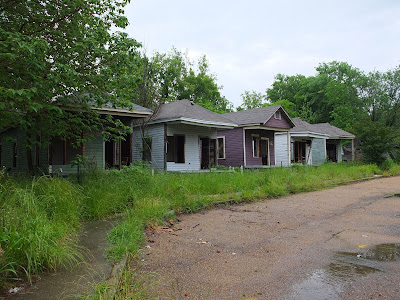



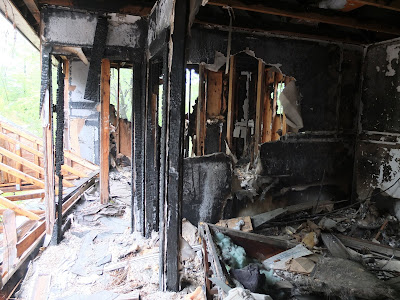










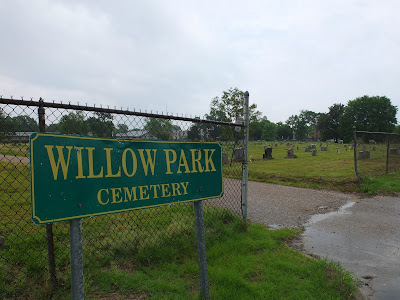














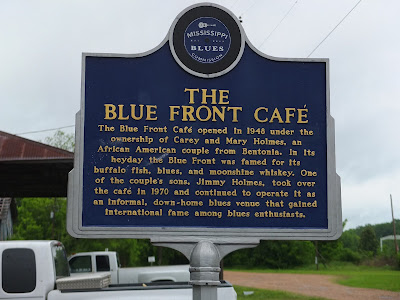











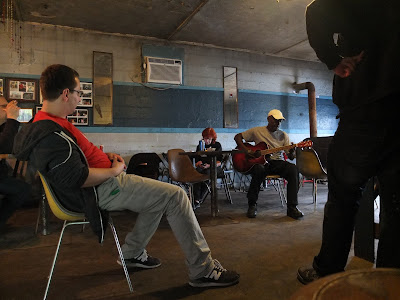

























info menarik dari www.bolavita.pro
AntwortenLöschenMau bonus ? klik disini ya ayam jago bangkok
AntwortenLöschenSuka bertaruh sabung ayam ? sekarang sudah praktis
AntwortenLöschenbisa bermain kapan saja dan dimana saja
kami tunggu kedatangan anda di BOLAVITA
Info Lebih Lanjut Bisa Hub kami Di :
whatup : 08122222995
BBM: D8C363CA
video viral sabung ayam-pukul mati
AntwortenLöschenTips dan Trick Bermain Judi Online
AntwortenLöschenAgen Togel Singapura
Museumbola Slot IDN
Museumbola Slot Habanero
<Daftar Togel Online
Agen Togel Hongkong
AKSES SEGERA SITUS KAMI 1 ID BANYAK PERMAINAN
WA OFFICIAL : +6283157394921
ayo bergabung dengan bolavita khusus new member lgsg di berikan 10%
AntwortenLöschentanpa ribet dan masih banyak bonus2 lain nya
semua di berikan tanpa ribet pelayanan terbaik 24 jam
depo wd secepat kilat ^^ ayam sabung taji
info lbh lanjut :
WA: +628122222995